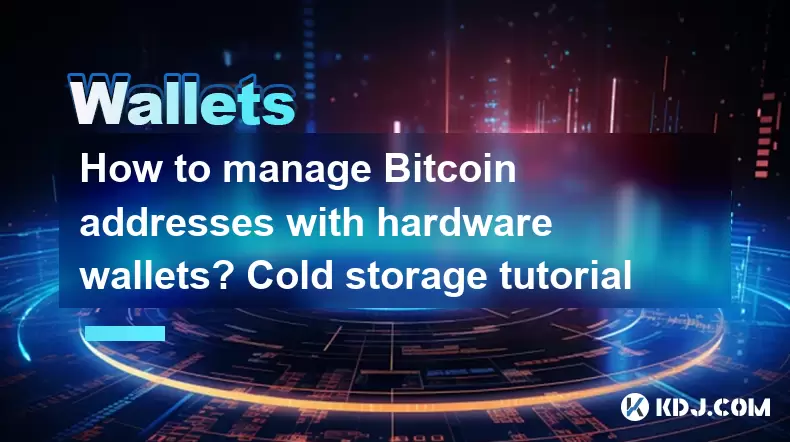-
 Bitcoin
Bitcoin $115000
0.12% -
 Ethereum
Ethereum $3701
4.50% -
 XRP
XRP $3.081
2.99% -
 Tether USDt
Tether USDt $0.0000
-0.01% -
 BNB
BNB $767.9
1.45% -
 Solana
Solana $169.5
3.13% -
 USDC
USDC $0.9999
0.01% -
 Dogecoin
Dogecoin $0.2106
4.30% -
 TRON
TRON $0.3334
1.62% -
 Cardano
Cardano $0.7564
2.54% -
 Stellar
Stellar $0.4165
0.76% -
 Hyperliquid
Hyperliquid $38.75
0.25% -
 Sui
Sui $3.593
3.00% -
 Chainlink
Chainlink $17.08
3.59% -
 Bitcoin Cash
Bitcoin Cash $573.6
4.35% -
 Hedera
Hedera $0.2508
-0.84% -
 Avalanche
Avalanche $23.07
6.46% -
 Ethena USDe
Ethena USDe $1.001
-0.02% -
 Litecoin
Litecoin $120.8
8.17% -
 UNUS SED LEO
UNUS SED LEO $8.943
-0.32% -
 Toncoin
Toncoin $3.400
-5.60% -
 Shiba Inu
Shiba Inu $0.00001255
1.54% -
 Uniswap
Uniswap $9.908
6.32% -
 Polkadot
Polkadot $3.718
2.10% -
 Monero
Monero $303.0
-0.74% -
 Dai
Dai $0.9999
-0.02% -
 Bitget Token
Bitget Token $4.392
0.91% -
 Cronos
Cronos $0.1403
6.31% -
 Pepe
Pepe $0.00001076
1.13% -
 Aave
Aave $267.2
1.80%
How to manage Bitcoin addresses with hardware wallets? Cold storage tutorial
Hardware wallets provide secure offline storage for Bitcoin, generating addresses and managing transactions safely with strong security practices.
May 13, 2025 at 07:28 am

Managing Bitcoin addresses with hardware wallets is a critical aspect of securing your cryptocurrency. Hardware wallets, also known as cold storage devices, offer an offline environment to store your Bitcoin, providing an additional layer of security against online threats. This tutorial will guide you through the process of managing Bitcoin addresses using hardware wallets, ensuring that you can safely store and transact your digital assets.
Understanding Hardware Wallets and Cold Storage
Hardware wallets are physical devices designed to store your cryptocurrency securely offline. Cold storage refers to the practice of keeping your cryptocurrency in an environment that is not connected to the internet, which significantly reduces the risk of hacking and theft. Popular hardware wallets include Ledger, Trezor, and KeepKey. These devices generate and store your private keys offline, ensuring that your Bitcoin remains safe from cyber threats.
Setting Up Your Hardware Wallet
Before you can start managing Bitcoin addresses, you need to set up your hardware wallet. Here’s how to do it:
- Unbox and Connect: Start by unboxing your hardware wallet and connecting it to your computer or mobile device using a USB cable. Ensure that you are using a trusted computer and that your antivirus software is up to date.
- Initialize the Device: Follow the on-screen instructions to initialize your hardware wallet. This typically involves setting a PIN code and generating a recovery seed phrase.
- Secure Your Recovery Seed: Your recovery seed is a list of words that can be used to restore your wallet if it is lost or damaged. Write down your recovery seed and store it in a secure location. Never share your recovery seed with anyone.
Generating Bitcoin Addresses
Once your hardware wallet is set up, you can generate Bitcoin addresses to receive funds. Here’s how:
- Access Your Wallet: Open the wallet software that is compatible with your hardware wallet. This could be the official software provided by the manufacturer or a third-party application like Electrum or MyEtherWallet.
- Select Bitcoin: Navigate to the Bitcoin section of the wallet software. Depending on the software, you may need to select Bitcoin as the cryptocurrency you want to use.
- Generate Address: Click on the option to generate a new receiving address. Your hardware wallet will create a new Bitcoin address, which you can use to receive funds. Copy the address and share it with the sender to receive Bitcoin.
Sending Bitcoin from Your Hardware Wallet
Sending Bitcoin from your hardware wallet involves a few steps to ensure the transaction is secure and accurate. Here’s how to do it:
- Access Your Wallet: Open your wallet software and connect your hardware wallet to your computer or mobile device.
- Select Bitcoin: Navigate to the Bitcoin section of the wallet software.
- Enter Recipient Address: Enter the recipient’s Bitcoin address in the designated field. Double-check the address to avoid sending funds to the wrong recipient.
- Enter Amount: Specify the amount of Bitcoin you want to send. Be aware of the transaction fees, which will be deducted from the amount you send.
- Confirm Transaction: Your hardware wallet will prompt you to confirm the transaction on the device itself. Verify the transaction details on the hardware wallet and confirm the transaction by entering your PIN code.
- Wait for Confirmation: Once confirmed, the transaction will be broadcast to the Bitcoin network. It may take some time for the transaction to be confirmed by the network.
Managing Multiple Bitcoin Addresses
Hardware wallets allow you to manage multiple Bitcoin addresses, which can be useful for organizing your funds and enhancing privacy. Here’s how to manage multiple addresses:
- Generate New Addresses: You can generate new Bitcoin addresses as needed. Each address can be used to receive funds independently.
- Label Addresses: Many wallet software applications allow you to label your addresses for easy identification. Use descriptive labels to keep track of the purpose of each address.
- Consolidate Funds: If you have funds spread across multiple addresses, you can consolidate them into a single address. To do this, send the funds from the various addresses to a new address within your hardware wallet.
Securing Your Hardware Wallet
Securing your hardware wallet is crucial to protecting your Bitcoin. Here are some best practices:
- Keep Firmware Updated: Regularly update the firmware of your hardware wallet to ensure you have the latest security features.
- Use Strong PIN: Choose a strong and unique PIN code for your hardware wallet. Avoid using easily guessable PINs such as birthdays or simple sequences.
- Protect Recovery Seed: Store your recovery seed in a secure location, such as a safe or a secure deposit box. Never store it digitally or share it with anyone.
- Be Wary of Phishing: Always verify the authenticity of the wallet software and websites you use. Beware of phishing attempts that may try to trick you into revealing your private information.
Frequently Asked Questions
Q: Can I use a hardware wallet to manage other cryptocurrencies besides Bitcoin?
A: Yes, most hardware wallets support a variety of cryptocurrencies, including Ethereum, Litecoin, and many others. Check the specifications of your hardware wallet to see which cryptocurrencies are supported.
Q: What should I do if I lose my hardware wallet?
A: If you lose your hardware wallet, you can restore your funds using your recovery seed. Use the recovery seed to set up a new hardware wallet or use compatible software to access your funds. Always keep your recovery seed in a safe place.
Q: Is it safe to use a hardware wallet on a public computer?
A: It is not recommended to use a hardware wallet on a public computer, as there is a higher risk of malware and other security threats. Always use a trusted and secure computer to manage your hardware wallet.
Q: How often should I generate new Bitcoin addresses?
A: It is a good practice to generate new Bitcoin addresses for each transaction to enhance your privacy. However, the frequency of generating new addresses depends on your specific needs and how you manage your funds.
Disclaimer:info@kdj.com
The information provided is not trading advice. kdj.com does not assume any responsibility for any investments made based on the information provided in this article. Cryptocurrencies are highly volatile and it is highly recommended that you invest with caution after thorough research!
If you believe that the content used on this website infringes your copyright, please contact us immediately (info@kdj.com) and we will delete it promptly.
- Bitcoin, Fed Rate Cut, and Crypto Stocks: A New Yorker's Take
- 2025-08-05 14:50:12
- Police, Cryptocurrency, Bitcoin Windfall: Unexpected Gains and Cautionary Tales
- 2025-08-05 15:30:12
- MAGACOIN: The Next Shiba Inu ROI? A Crypto Presale Deep Dive
- 2025-08-05 15:30:12
- Bitcoin, Kiyosaki, and the August Curse: Will History Repeat?
- 2025-08-05 14:50:12
- Crypto Airdrops: Your August 2025 Guide to Free Tokens & Opportunities
- 2025-08-05 13:45:13
- Luxury Dining Reimagined: St. Regis Singapore & Marriott's Culinary Celebration
- 2025-08-05 13:45:13
Related knowledge

How to add TRC20 token to Trust Wallet?
Aug 04,2025 at 11:35am
Understanding TRC20 and Trust Wallet CompatibilityTrust Wallet is a widely used cryptocurrency wallet that supports multiple blockchain networks, incl...

What is a watch-only wallet in Trust Wallet?
Aug 02,2025 at 03:36am
Understanding the Concept of a Watch-Only WalletA watch-only wallet in Trust Wallet allows users to monitor a cryptocurrency address without having ac...

Why can't I connect my Trust Wallet to a DApp?
Aug 04,2025 at 12:00pm
Understanding DApp Connectivity and Trust WalletConnecting your Trust Wallet to a decentralized application (DApp) is a common process in the cryptocu...

How to fix a stuck pending transaction in Trust Wallet?
Aug 03,2025 at 06:14am
Understanding Why Transactions Get Stuck in Trust WalletWhen using Trust Wallet, users may occasionally encounter a pending transaction that appears t...

What is a multi-coin wallet in Trust Wallet?
Aug 03,2025 at 04:43am
Understanding Multi-Coin Wallets in Trust WalletA multi-coin wallet in Trust Wallet refers to a digital wallet that supports multiple cryptocurrencies...

How to switch between networks in Trust Wallet?
Aug 02,2025 at 12:36pm
Understanding Network Switching in Trust WalletSwitching between networks in Trust Wallet allows users to manage assets across different blockchains s...

How to add TRC20 token to Trust Wallet?
Aug 04,2025 at 11:35am
Understanding TRC20 and Trust Wallet CompatibilityTrust Wallet is a widely used cryptocurrency wallet that supports multiple blockchain networks, incl...

What is a watch-only wallet in Trust Wallet?
Aug 02,2025 at 03:36am
Understanding the Concept of a Watch-Only WalletA watch-only wallet in Trust Wallet allows users to monitor a cryptocurrency address without having ac...

Why can't I connect my Trust Wallet to a DApp?
Aug 04,2025 at 12:00pm
Understanding DApp Connectivity and Trust WalletConnecting your Trust Wallet to a decentralized application (DApp) is a common process in the cryptocu...

How to fix a stuck pending transaction in Trust Wallet?
Aug 03,2025 at 06:14am
Understanding Why Transactions Get Stuck in Trust WalletWhen using Trust Wallet, users may occasionally encounter a pending transaction that appears t...

What is a multi-coin wallet in Trust Wallet?
Aug 03,2025 at 04:43am
Understanding Multi-Coin Wallets in Trust WalletA multi-coin wallet in Trust Wallet refers to a digital wallet that supports multiple cryptocurrencies...

How to switch between networks in Trust Wallet?
Aug 02,2025 at 12:36pm
Understanding Network Switching in Trust WalletSwitching between networks in Trust Wallet allows users to manage assets across different blockchains s...
See all articles

























































































